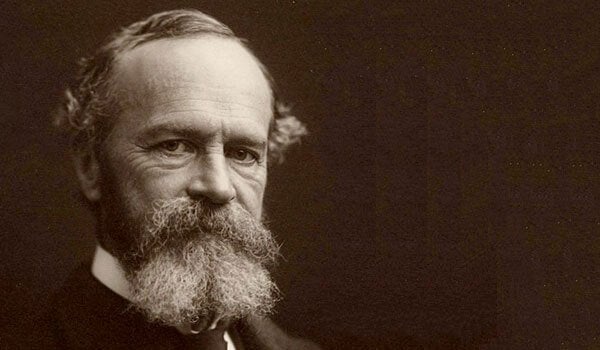The concept of truth is difficult to define, although we use it very often and it is considered very important. Looks like we trust him, doesn’t it? At all times, and that every day she is very close to us.
Then why is it so hard to define? The point is that although this concept seems so clear to us, there are cases or arguments that immediately show gaps in its definition.
- In this article we will look at the definition of the concept of truth according to the theory of William James (1842-1910).
- American philosopher and professor of psychology at Harvard University.
- As well as the founder of functional psychology.
William James defended a conception of humanist and practical truth, based on human experience from the available evidence. James’s concept of truth remains one of the most important definitions of it, both for philosophy and for other disciplines, as a humanistic definition of the concept. it really applies to almost every field.
James differentiated two ways of knowing things, on the one hand, the individual might know something intuitively, through indirect experience, would an example of this be a person who sees a piece of paper or a pen in front of his eyes?object through thought.
However, on the other hand, someone may experience the same thing through different stimuli, through physical or mental intermediaries that connect thought and object.
Thus, James states that the intuitive form of knowledge is the direct apprehension of something and is not mediated by anything, so truth, for intuitive knowledge, is a matter of direct awareness of the flow of experience.
On the contrary, we have a conceptual or representative knowledge, such as knowing that a belief is true by knowing it through a context through which the world operates, as proof of its existence.
For James, truth is not an inherent and immutable property of the idea, but an event in the idea according to its verifiability; in this sense, verifiability, for James, consists of a pleasant sense of harmony and progress in the succession of ideas and that is, they have ideas, they succeed and adapt to this succession of realities that we live.
These real ideas play a fundamental role: to be useful tools for individuals, so that this person can use them to guide himself in the present reality, so, having these ideas, what you have is a practical good that allows you to know other vital ones. Thus, for James, the true is the useful, that is, it introduces a blessing into the life lived and deserves to be preserved.
William James’s conception of truth is based on pragmatic theories of truth. These are theories that originated in the philosophy of pragmatism. These pragmatic theories of the concept of truth were first proposed by thinkers such as Charles Sanders Peirce, John Dewey and then William James.
The common characteristics of these three thinkers’ theories are the use of maximum pragmatic as a means of clarifying the meaning of difficult concepts, such as truth, and emphasize that belief, certainty, knowledge, and truth are the result of research. .
William James’s version of pragmatic theory is often summed up in his claim that “the real thing is only the resource of our way of thinking, just as the law is just the resource of our way of behaving. “With this, James means that truth is a quality whose value is confirmed by its effectiveness in applying concepts in real practice.
James’ pragmatic theory is a synthesis of truth correspondence theory and truth coherence theory with an additional dimension; In this way, truth is verifiable because thoughts and affirmations actually correspond to real things, just as we can assemble or assemble. Assemble the pieces of a puzzle to match them. In this act, they are verified by the observed results of an application of an idea in practice.
In this sense, James says that every true process should lead to the possibility of direct verification of sensitive experiences in one way or another. He also extended his pragmatic theory beyond the scope of scientific verifiability, and even beyond the scope of mystique. .
According to James: “According to pragmatic principles, if God’s hypothesis works satisfactorily in the broadest sense of the word, is that true?”

